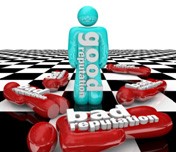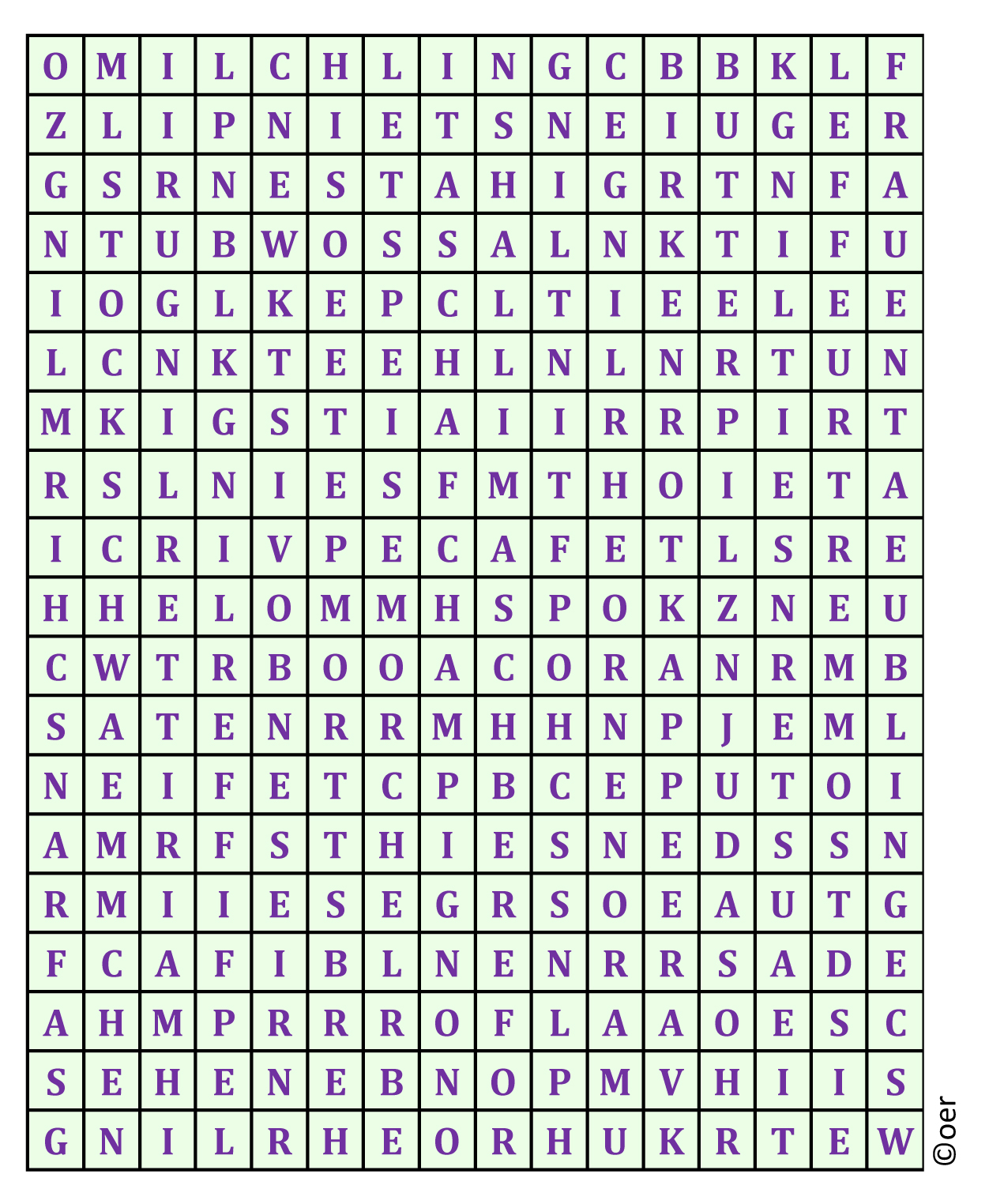
Wir denken bei Thailand automatisch an Sex-Business, Sex-Tourismus, Korruption und organisierte Kriminalität. Von außen. Christopher G. Moore lebt und schreibt in dieser Gesellschaft. – Heute: Verschiedene gesellschaftliche Gruppierungen ticken verschieden. Im Kulturbetrieb, zum Beispiel, hängt das Wohl und Wehe der Teilnehmer davon ab, ob sie den Grundmechanismen erkannt haben: It’s all about prestige. Christopher G. Moore untersucht die Funktion von Reputation in verschiedenen Kontexten.
Reputation
The difference between a man with a big reputation and one with no reputation is very little. That is the stone I want to put in your shoe. This weekend, walk around the block with it a couple of times before you take your shoe off and throw the stone away. We are conditioned to believe a universe of difference exist between people based on their reputations. Of course it is another social construct drilled into our skulls, the wound healed up, and we don’t ever remember the operation that put it in our minds. But it is there, rolling around each time we see a friend, a neighbor, a colleague, someone on TV or in a movie, or read something on social media.
 We are bombarded with reputation type advertisements. The advertisement often features is a smiling celebrity selling us a watch, perfume, a car or a cell phone. That person has a big reputation. The product or service he or she is shilling for benefits from the angel dust of the celebrity’s reputation. If his wife throws him out for infidelity like Tiger Woods or he shoots his girlfriend through the bathroom door like Oscar Pistorius, the ad campaign is cancelled and the connection is severed. Consumerism thrives on an ecology based on reputation.
We are bombarded with reputation type advertisements. The advertisement often features is a smiling celebrity selling us a watch, perfume, a car or a cell phone. That person has a big reputation. The product or service he or she is shilling for benefits from the angel dust of the celebrity’s reputation. If his wife throws him out for infidelity like Tiger Woods or he shoots his girlfriend through the bathroom door like Oscar Pistorius, the ad campaign is cancelled and the connection is severed. Consumerism thrives on an ecology based on reputation.
People online are infinitely conscious of their reputation among their ‘friends’ on Facebook and Twitter. Slights, criticisms, and disrespect tarnish the highly polished reputation. People with a reputation, in other words, have something, in their mind, of great value that is to be protected and guarded. Reputation, like money, is a currency that buys the most precious of all commodities—social co-operation. We want to associate with people with high reputation. We want them as our friends, colleagues, family members, spouses, teachers, judges, politicians, policemen, generals, and sports figures. We want them to be heroes. We want them to be brilliant, kind, insightful, moral, and perfect. We demand the impossible and we reap the grief of disappointment when they fail us.
In Thailand, reputation, identity and face are rolled into a spiritual, sacred part of a person’s vital being. The cultural illusion is that face represents the essence of the person. Causing someone to lose ‘face’ in Thailand is dangerous. Case studies of people being stabbed, hacked, shot, knifed, strangled, dismembered, burnt or suffocated as a reaction to the loss of face would fill a small library. There seems to be a grim consensus that the victim is the one whose face has been destroyed and the dead face destroyer pretty much got what he or she deserved. Other cultures place an even more radical value on reputation or face, one that can extend to the entire family. For example, in some Muslim countries, if a woman is raped or runs away with her sweetheart against the wishes of her family, her relatives stone her to death in order to preserve the reputation of the family.
 Reputation, gaining, maintaining or losing it, in other words, can be a very serious business. Social media has made fundamental changes to the reputation game. Those seeking to use their big reputation online find a battalion of anonymous snipers gunning them down every timeline and newsfeed. And ordinary people can overnight create a large reputation from a YouTube video or photograph of a cat or baby. Our definition of what it means to have a ‘big’ reputation is changing. Among the millions of people who instantly recognize Kim Kardashian’s ass, how many of them would recognize the face of the 2014 Nobel Prize winner for Literature’s face? For those who have gained their reputation status in the analogue world, the digital minefields (I am sticking to the warfare metaphors) are more than an obstacle they are a clear and present danger. Bring in the minefield sweepers, and that is what appears to be happening in many places. Freedom of speech has been a casualty of this digital war.
Reputation, gaining, maintaining or losing it, in other words, can be a very serious business. Social media has made fundamental changes to the reputation game. Those seeking to use their big reputation online find a battalion of anonymous snipers gunning them down every timeline and newsfeed. And ordinary people can overnight create a large reputation from a YouTube video or photograph of a cat or baby. Our definition of what it means to have a ‘big’ reputation is changing. Among the millions of people who instantly recognize Kim Kardashian’s ass, how many of them would recognize the face of the 2014 Nobel Prize winner for Literature’s face? For those who have gained their reputation status in the analogue world, the digital minefields (I am sticking to the warfare metaphors) are more than an obstacle they are a clear and present danger. Bring in the minefield sweepers, and that is what appears to be happening in many places. Freedom of speech has been a casualty of this digital war.
We are in denial that the right to a broad freedom of expression is in triage. We don’t want to confront that reality. As we know, denial is the first stage in the five stage of grieving. We shut it out and pretend that we are entering a tunnel of grief and there is no way out. This sense of denial has been working through our consciousness for a long time, as has the crude, clumsy and brute stuff at the hands of dictators and authoritarian laws; it has been chipped away by those who have been the greatest supporters of freedom of speech, and they’ve done this in the name of hate crimes. Freedom of Expression has been slimmed down to the bone by both sides of the political divide for their own ideological reasons. One wonders whether free speech remains capable to run a good race in the competition for ideas. Speech can be a nasty, dirty and hateful display by the worst of our species, attacking women, gays, blacks, fat people, ethnic groups and religion. For everyone who stands on a soapbox and challenges an official or government policy connected with torture, extra-judicial murder or corruption, there will be five people standing on a soap box in some dusty, fly-bitten slum attacking the equivalent of Salman Rushdie’s Midnight Children.
Authors are, as a class, as obsessed by reputation as much as the next person. You don’t have to look far to find one who falls apart emotionally over a ‘bad’ review, who lashes out as if the poison from the arrow shot into his reputation slowly causes his brain to unleash an unworldly howl. What readers (and most authors) forget is that a writer starts out with no reputation. She is an ordinary person sitting in a café, living off the dole, drinking coffee and writing Harry Potter. J.K. Rowling, yes Virginia, started off as a nobody. After her reputation went off the charts into the realm of hyperspace-reputation, she penned a mystery under another name because she wished to escape her ‘reputation’ to prove that she could write a successful, well-received book without her ‘big’ name on the book. Of course The Cuckoo´s Calling.
Appeared like another guppy in a large school of guppies. Then word leaked out that it was written by ‘big’ reputation Star Fish named J.K. Rowling and it stood out in the aquarium, going on to become a huge international bestseller, confirming what we all ready know—we buy on reputation. We live and die on reputation. We are conditioned by birth to vote, love, kill, give and condemn based on someone’s reputation.
B.F. Skinner, the behavioral psychologist, saw people as malleable and easily shaped by positive tools like money rewards and negative reinforcements like shaming, shunning, or confinement. Skinner called our ability to be manipulated through rewards and punishments ‘operant conditioning.’ Consumerism exists because of this flaw in our collective character. We are insecure as to our identity, what is of value, what is worth living and dying for, that we are ripe to be manipulated by the big reputation gods that walk among us.
There are abstract ideals we believe people have the free will to choose—integrity, morality, ethics, or motives. When someone is attacked for corruption, wife beating, drug addiction, meanness, pettiness it diminishes their reputation. There are defamation laws to protect reputation. And in Thailand there are not just civil laws, but criminal defamation laws that will send someone who attacks another person, say for human trafficking, to prison. The state is enlisted as a protector of individual reputations. Reputation is these cases overrides facts that support the person was a fraud or charlatan. Criminal defamation makes them bullet proof; facts and evidence bounce off the plaintiff’s chest like bullets hitting superman.
Freedom of expression is important as a way to keep reputations from becoming bloated, overblown and dangerous lies. Much like there are drug testing laws that seek to protect us from ingesting drugs that will kill us, free speech allows us to expose the lies and deception and half-truths that poison a society. We all know this and agree to it in principle. We accept that those in the public eye, who have established a high reputation, are vulnerable to false accusations, slanders, and hate.
The question is whether we can tolerate the damage done by trolls, the haters, and psychos as a fair price to be exchanged for freedom of expression?
There are abstract ideals we believe people have the free will to choose—integrity, morality, ethics, or motives. When someone is attacked for corruption, wife beating, drug addiction, meanness, pettiness it diminishes their reputation. There are defamation laws to protect reputation. And in Thailand there are not just civil laws, but criminal defamation laws that will send someone who attacks another person, say for human trafficking, to prison. The state is enlisted as a protector of individual reputations. Reputation is these cases overrides facts that support the person was a fraud or charlatan. Criminal defamation makes them bullet proof; facts and evidence bounce off the plaintiff’s chest like bullets hitting superman.
Freedom of expression is important as a way to keep reputations from becoming bloated, overblown and dangerous lies. Much like there are drug testing laws that seek to protect us from ingesting drugs that will kill us, free speech allows us to expose the lies and deception and half-truths that poison a society. We all know this and agree to it in principle. We accept that those in the public eye, who have established a high reputation, are vulnerable to false accusations, slanders, and hate.
The question is whether we can tolerate the damage done by trolls, the haters, and psychos as a fair price to be exchanged for freedom of expression?
The reputation marauders pump cluster bombs to blow up reputations; they work around the clock on thousands website, blogs, gossip columns, and chat room. We love talking about ‘big’ reputation people, and one that has run over a cop, cheated widows and orphans out of their meager savings, or shot his girlfriend, is all over the news. The Germans have a great word for this moment as the reputation crashes and burns: Schadenfreude. You think you’re such a big shot, look at yourself in the mirror now. You see, you’re no different than the rest of us. Like my opening sentence, there has never been any other than imagined difference. But our imaginations create the balloon and marvel and cheer at its destruction.
That is the problem. We want freedom of expression without paying the piper. We think free means without costs. That is nonsense. But we accept so much nonsense and lies why should our skewed view of free speech be any different?
Some of the most honest writing you will read comes from writers before they had a reputation. Three such writers are Charles Bukowski, Henry Miller and George Orwell. All of them were down and out and wrote about what life looked like when they had nothing but their wits, talent for insight, the observational skill, and with nothing in terms of reputation to lose. You learn from reading Bukowski what it’s like to be stopped by the police when you are a nobody and a drunk. He conveyed our worst fears of terror, humiliation, and helplessness; how they taste, how they stink and stick in our crawl. They reek like stale beer and cigarette smoke from Bukowski’s work. He not only understood fear, Bukowski could express that fear in words. He understood your fear, my fear and all of those around us. We are afraid that without a reputation anyone can do whatever they wish to you, violate you, beat you up, run over you, take your property, your wife, children, dog and there is bugger all you can do. So long as the actor has a ‘big’ reputation and there are no witnesses, and you have none, you are toast. It is your word against his. Good luck.
From Henry Miller, you learn the mental resources that are needed if you are a nobody and want food, drink or a place to flop in Paris. Miller lived among artists, the dreamers, the adventurers and wanderers, and he had an inner confidence that he’d be a somebody one day. He wrote about being a writer with a dream. But a dream doesn’t even rise to the level of a reputation. And we’ve already established a reputation is an abstraction, a social construct, and a fiction. Miller drove himself with booze and cigarettes and adrenaline to write a book that would convert him into a ‘big’ reputation man. Tropic of Cancer did that for him. And George Orwell’s Down and Out in Paris, you find in this book no romance in poverty and obscurity. Orwell went to the extreme. From Eton to the slum in order to experience how the class with no reputation existed. And he left us with a lesson—it wasn’t class but reputation that drove our manipulation to our high reputation overlords. Money was always part of the deal, a big part, but to keep it and expand the bank account, a man or woman needed a reputation to act as the armed guards against the anonymous who asked awkward questions about wealth allocation.
You can read Bukowski, Miller and Orwell (and of course there are many others, too) as sending signals from the pages of their novels and memoir to the rest of us that life without a big reputation behind it is a slow fuse that will sooner or later blow you into oblivion. Being anonymous, a no name person, like a no name brand, translates into a sense of worthlessness. Who wants to think of themselves as having no value? We are conditioned, in a B.F. Skinner way, to believe our value must be measured by the value of other people’s reputation. No matter what you’ve accomplished or done, just remember there will inevitably be someone who has done what you done by the time they were twelve years old and accomplished ten other grand things by the time they are thirty, and so it goes.
It’s a competition game you can never win. It’s also a con game. If we forget about reputation, then on what basis can we trust our judgment to rely on someone else? You need a leap of faith—the belief that most people are decent, honest, reliable, and kind and a big reputation is no guarantee that the holder has any of those qualities. You likely know lots of people who fit this bill who aren’t ‘big’ reputation people in the public commons. That’s always been the wrong place to look. They are closer to home, in your neighborhood, your office, and most of them are chasing the same things we all are—security, fairness, comfort, pleasure, and friendship. They don’t need the big named public role models, they just need to have confidence in themselves there is very little difference between people and go forward in the world and act upon that insight.
Christopher Moore
Dieser Text erschien am 13.11. 2014 auf unserer Partnerseite. Christopher G. Moore: Chickensex. Storys bei CulturBooks.
Christopher’s latest Vincent Calvino novel, 14th in the series, is titled The Marriage Tree and is available.
Christopher C. Moore: The Wisdom of Beer.
Der Untreue-Index beim Unionsverlag. Bangkok Noir. The Cultural Detective. Kindle/Amazon. UK and Kindle/Amazon USA. Moores Podcast. Die Vincent Calvino-Romane. Der Autor beim Unionsverlag.
Zu Christopher G. Moores Website und zu Tobias Gohlis’ Rezension des Untreue Index bei arte.
Titelbild: Victor Bezrukov, wikimedia commons.











